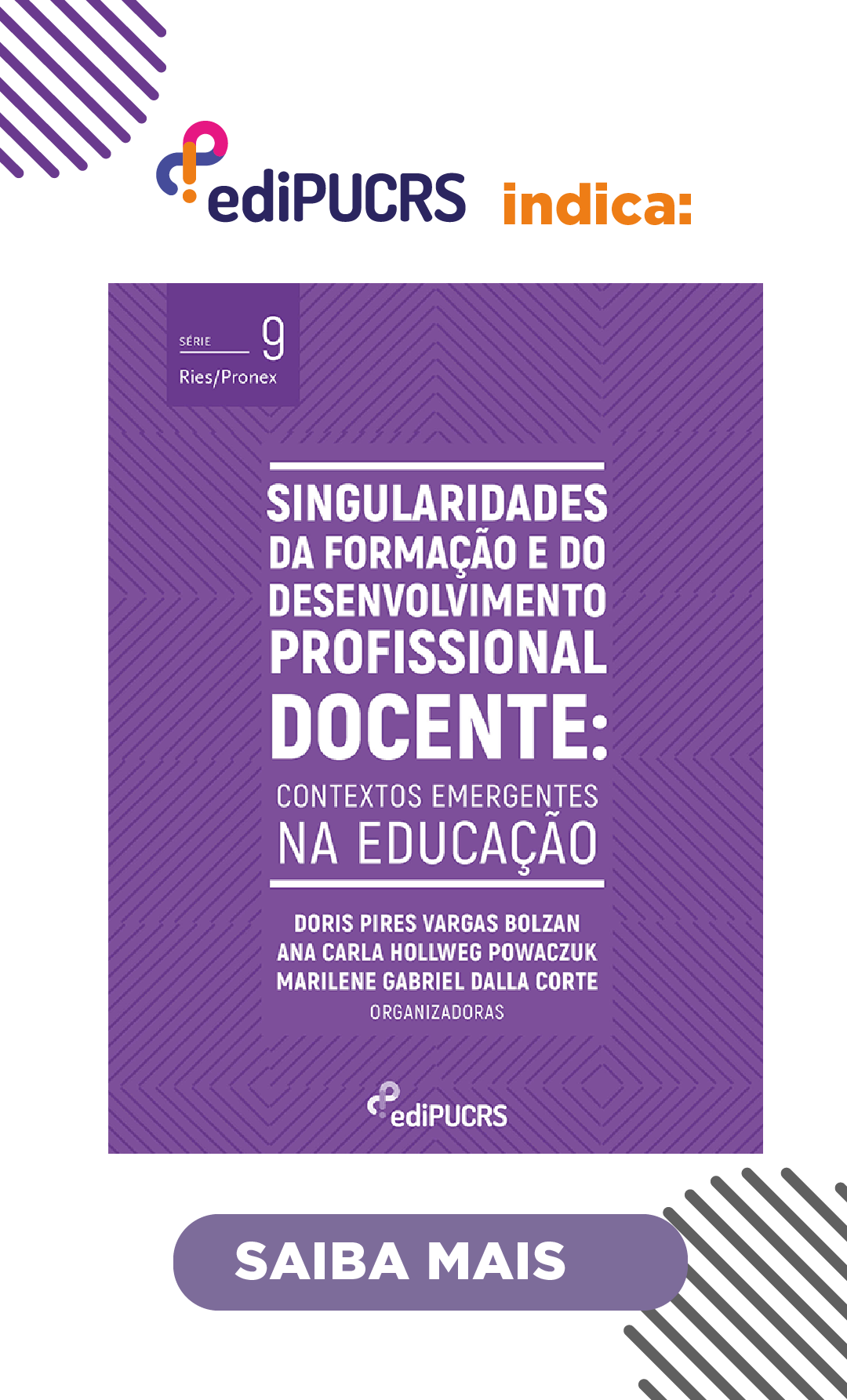University teaching and student learning
In search of answers on how Active Methodologies can make the class more meaningful
DOI:
https://doi.org/10.15448/2179-8435.2021.1.31688Keywords:
University Teaching, Teaching and learning, Active MethodologiesAbstract
This scientific essay, aims to reflect on university teaching and student learning, in order to seek answers on how Active Methodologies can make the class more meaningful to the subjects involved, being they teachers and students. The theoretical research of this subject is fruit of the studies of the Group of Research in Education and Technologies (GPET). The on-screen study evidences in its theoretical reference the Active Methodologies, its concept and main exponents, besides discussing how it becomes relevant to ally them with the digital technologies and, finally, presents Problem-Based Learning as an alternative to university education. As results, we present that the Active Methodologies contribute to the students’ learning, as real subjects of the process, generating teaching practices that can innovate. Thus, the Active Methodologies, with the combination of digital technologies and Problem-Based Learning, are references for a pedagogical action that advocates training based on the resolution of real challenges, giving more meaning to professional training, both of those who teach, how much of who learns.
Downloads
References
BERBEL, Neusi Aparecida Navas. As metodologias ativas e a promoção da autonomia de estudantes. Ciências Sociais e Humanas, Londrina, v. 32, n. 1, p. 25-40, 2011. http://doi.org/10.5433/1679-0383.2011v32n1p25
FADEL, Charles; BIALIK, Maya; TRILLING, Bernie. Educação em quatro dimensões: As competências que os estudantes precisam para atingir o sucesso. Traduzido por Instituto Península e Instituto Ayrton Senna, 2015.
JESUS, Patrick Medeiros de; GALVÃO, Reinaldo Richardi Oliveira; RAMOS, Shirley Luana. As tecnologias digitais de informação e comunicação na educação: Desafios, riscos, e oportunidades. In: Anais do Seminário Nacional de Educação Profissional e Tecnológica, 2012. Disponível em: http://www.senept.cefetmg.br/galerias/Anais_2012/GT-02/GT02-010.pdf
LEVY, Pierre. Cibercultura. Tradução Carlos Irineu Costa. São Paulo: Editora 34, 1999, 264 p.
BACICH, Lilian; MORAN, José. Metodologias ativas para uma Educação inovadora: uma abordagem teórico-prática. Porto Alegre: Penso, 2018.
MELO, Bárbara de Caldas; SANT’ANA, Geisa. A prática da Metodologia Ativa: compreensão dos discentes enquanto autores do processo ensino-aprendizagem. Revista Ciências Saúde, v. 23, n. 4, p. 327-339, 2012. Disponível em: http://pesquisa.bvsalud.org/bvsecuador/resource/pt/mis-36480?lang=pt
MORAN, José Manuel; MASETO, T.; BEHRENS, Marcos. Novas tecnologias e mediação pedagógica. 21ª Ed. Campinas, SP: Papirus, 2013.
MORAN, José Manuel. Metodologias Ativas para uma aprendizagem mais profunda. In: ______. Metodologias ativas para uma Educação inovadora: uma abordagem teórico-prática. Porto Alegre: Penso, 2018.
NOVOA, Antônio; HAMELINE, Daniel; SACRISTAN, Gimeno J.; ESTEVE, M. José; WOODS, Peter; CAVACO, H. Maria. Profissão professor. 2ª Ed. Antônio Novoa (Org.). Porto: Porto Editora, 1999.
SOUZA, S. C; DOURADO L. Aprendizagem Baseada em Problemas (ABP): um método de aprendizagem inovador para o ensino educativo. HOLOS, v. 5, 2015. https://doi.org/10.15628/holos.2015.2880
VALENTE, Geilsa Soraia Cavalcanti; VIANA, Ligia de Oliveira. O ensino de nível superior no brasil e as competências docentes: um olhar reflexivo sobre esta prática. Práxis Educacional, v. 6, n. 9, 2010. Disponível em: https://periodicos2.uesb.br/index.php/praxis/article/view/641
Downloads
Published
How to Cite
Issue
Section
License
Copyright (c) 2021 Educação Por Escrito

This work is licensed under a Creative Commons Attribution 4.0 International License.
Copyright
The submission of originals to Educação Por Escrito implies the transfer by the authors of the right for publication. Authors retain copyright and grant the journal right of first publication. If the authors wish to include the same data into another publication, they must cite Educação Por Escrito as the site of original publication.
Creative Commons License
Except where otherwise specified, material published in this journal is licensed under a Creative Commons Attribution 4.0 International license, which allows unrestricted use, distribution and reproduction in any medium, provided the original publication is correctly cited.





